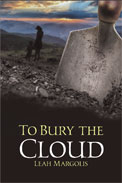
 |
Jules Wecott is an occupational therapist who encounters patients from all walks of life, dealing with myriad situations. She provides what comfort and stability she can in cases of instability. The doctors on her rehabilitative team practice medical care in various capacities ranging from reattaching limbs to restoring eyesight and hearing to reconstructions of facial structures. While Jules appreciates a good relationship with her co-workers, her patients give her meaning and purpose. She thrives on helping them overcome hardships, which provides her with a "breath of fresh air" and "renewed vigor."
But when she meets a severely abused three-year-old named James, Jules' own childhood abuse surfaces. The author deftly explores Jules' repressed past when her protagonist cannot shake the "overwhelming heaviness" of Little James. As she reflects on growing up in upstate New York, Jules confronts the long-buried pain of her mother's abuse toward her. She struggles to express emotion and find comfort away from damaged environments. Yet witnessing James and other patients gradually improve their lives helps Jules work through her trauma. As she helps James find joy, she also finds love and embraces a new relationship while freeing herself from deep pain.
Margolis' beautiful and somber novel of a woman accepting her own, inescapable damage is a powerful story. Carefully weaving together Jules' past and present, Margolis mirrors Jules' internal struggles with the patients' physical and emotional struggles. Though the narrative seems a bit heavily focused on multiple patients beyond James, their stories are also what form the core of Margolis' novel, allowing Jules (and the reader) to see beauty and relief from the dark clouds that plague us. An Eric Hoffer Award finalist, Margolis celebrates the human spirit and what people can overcome.
A 2021 Eric Hoffer Book Award Category Finalist